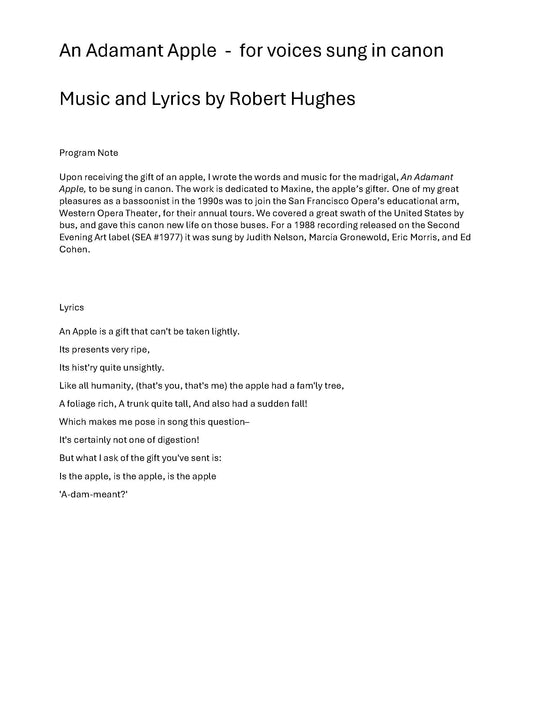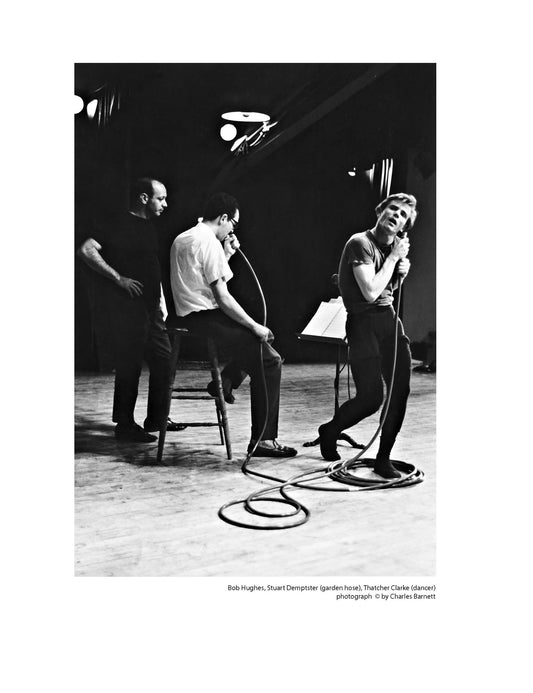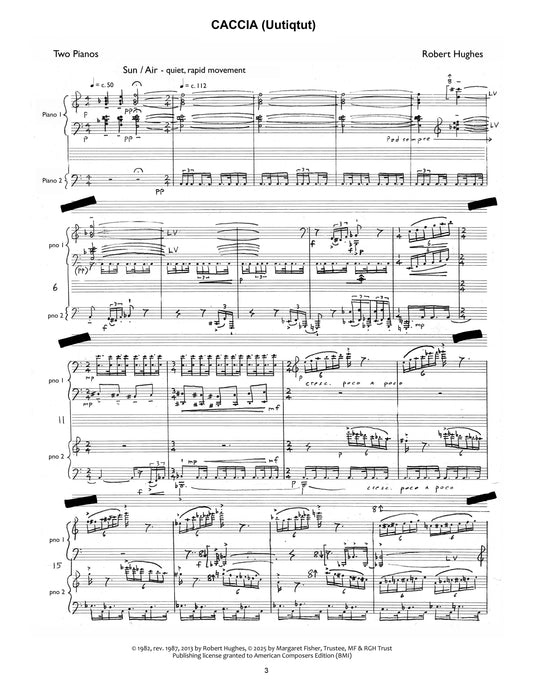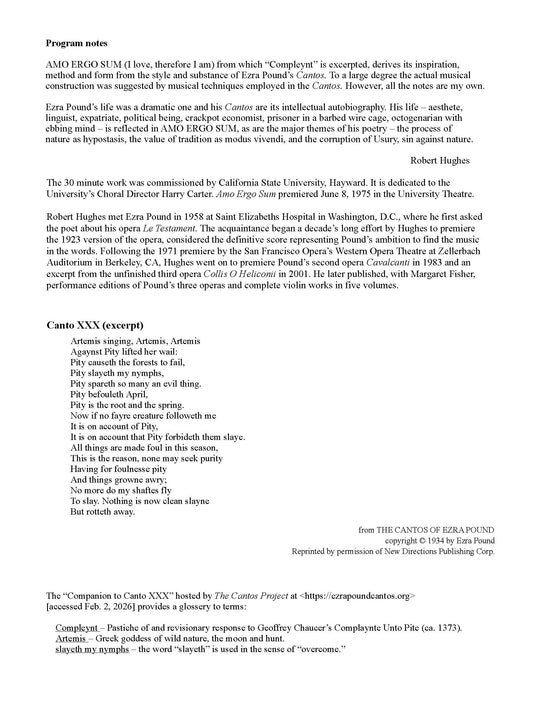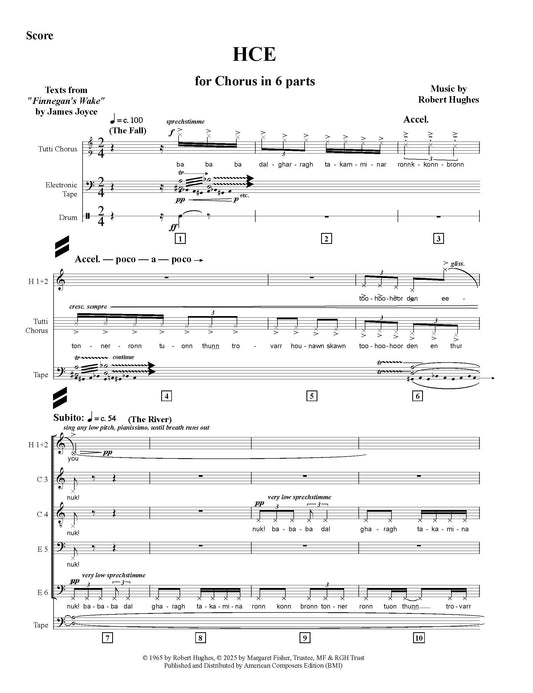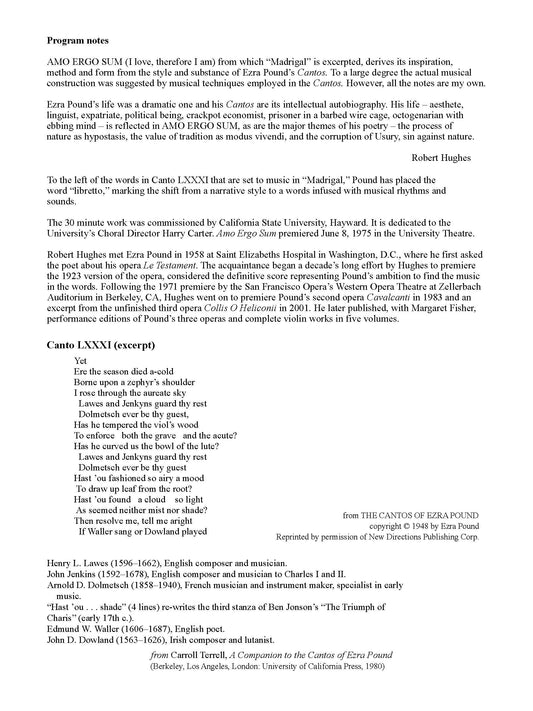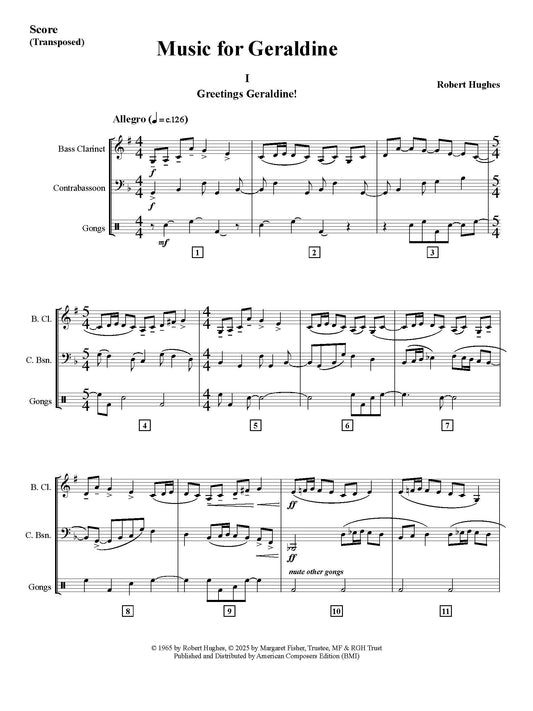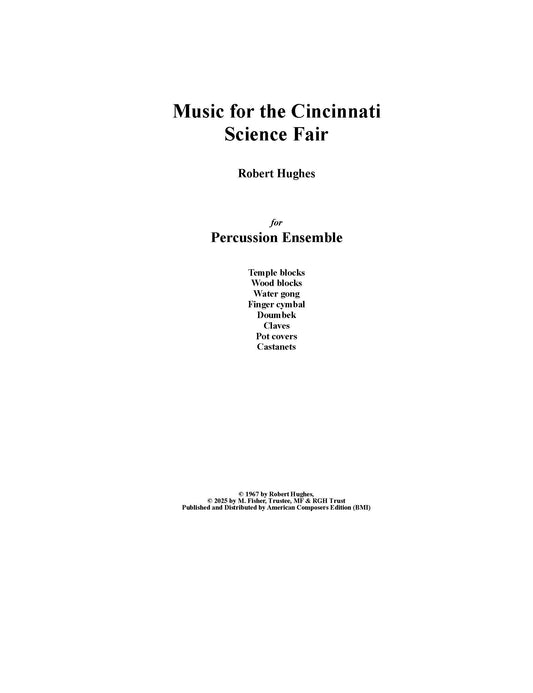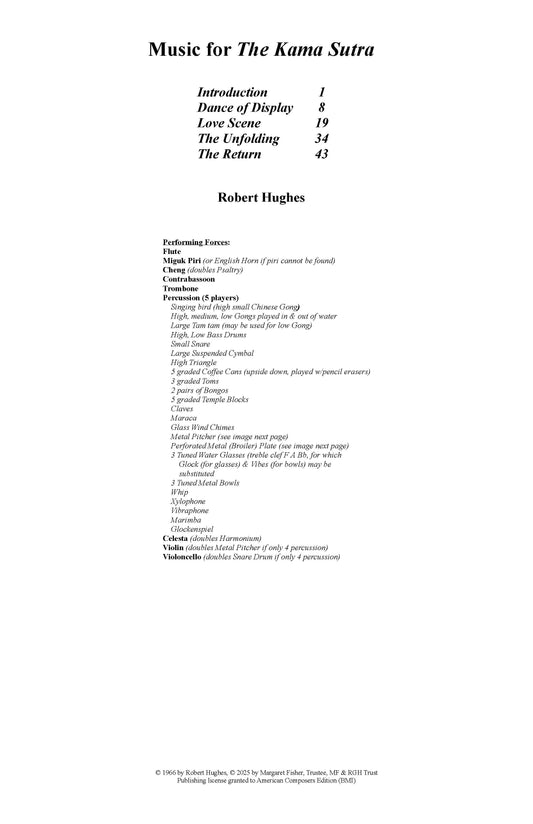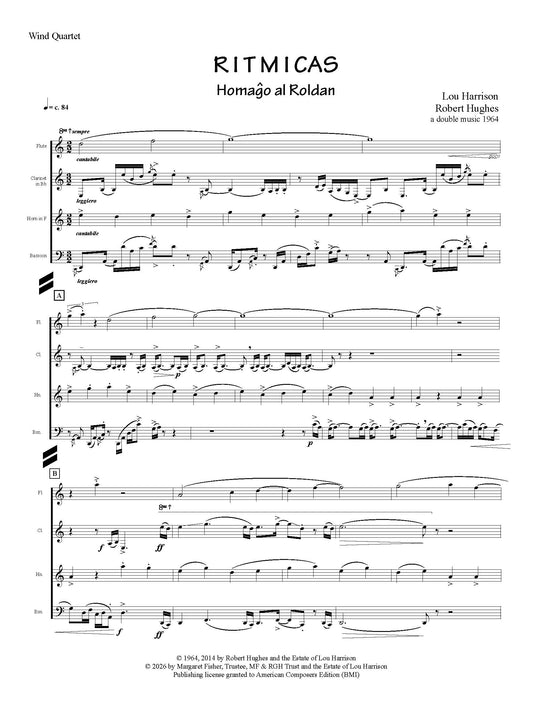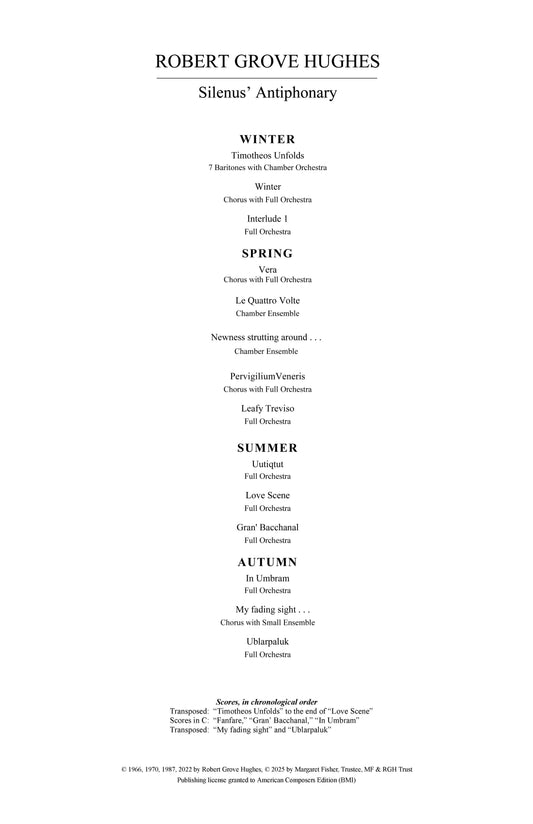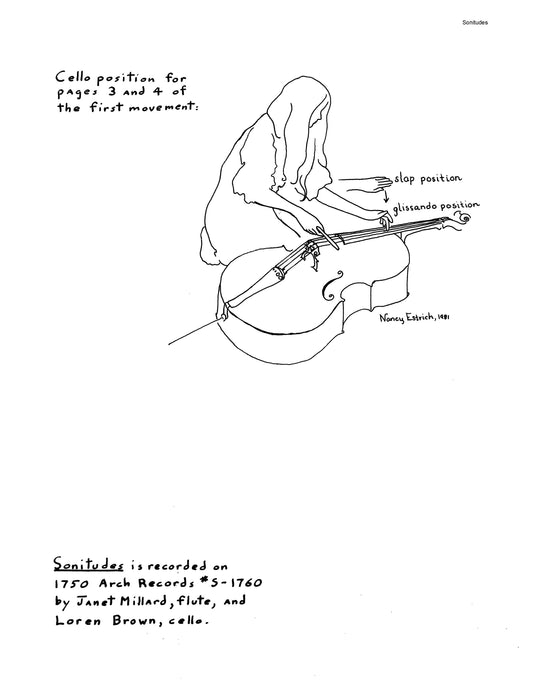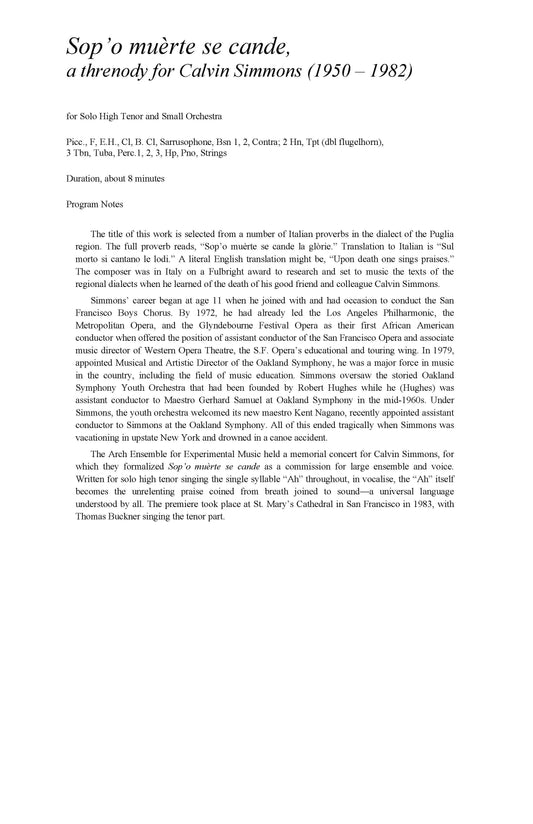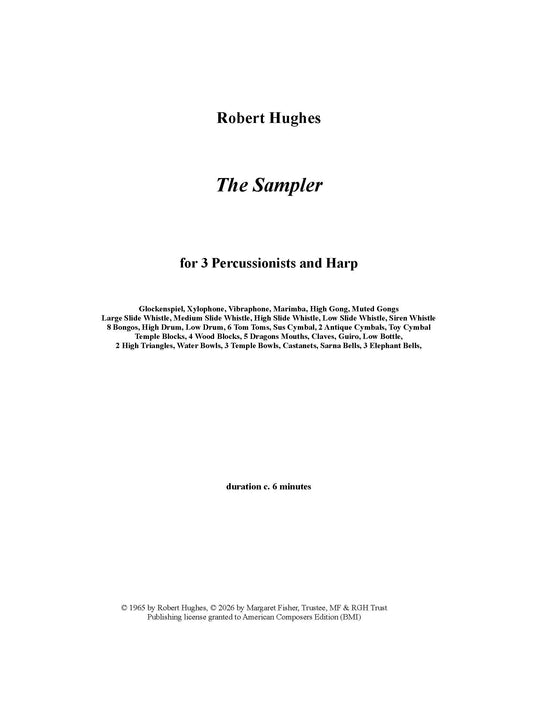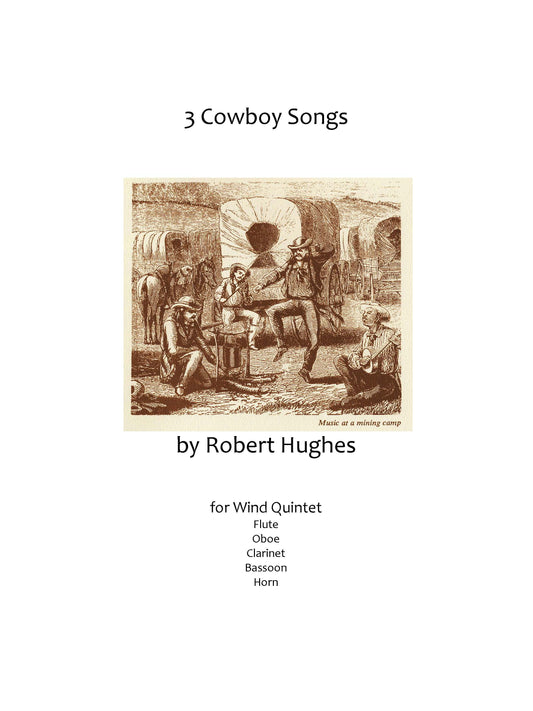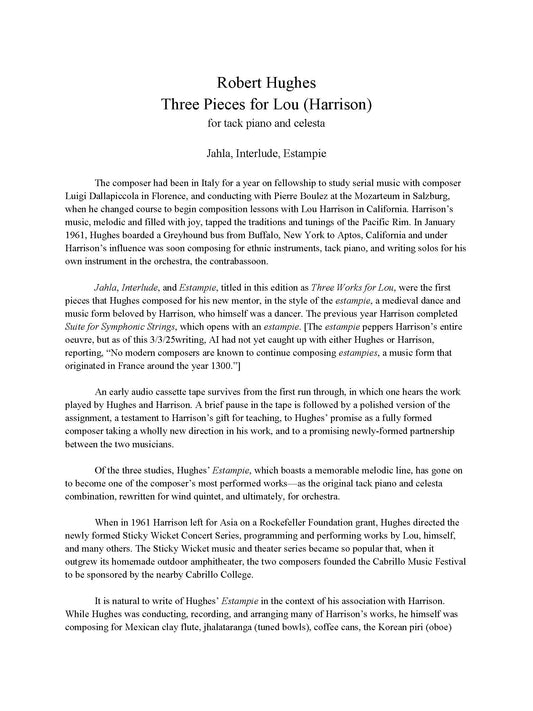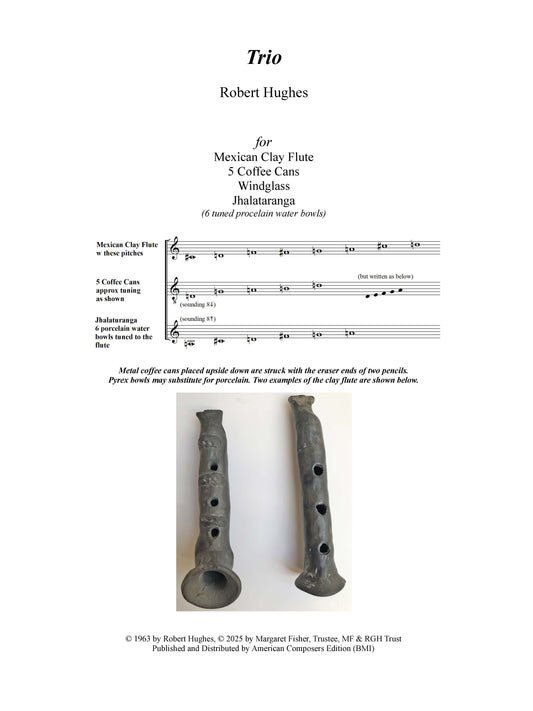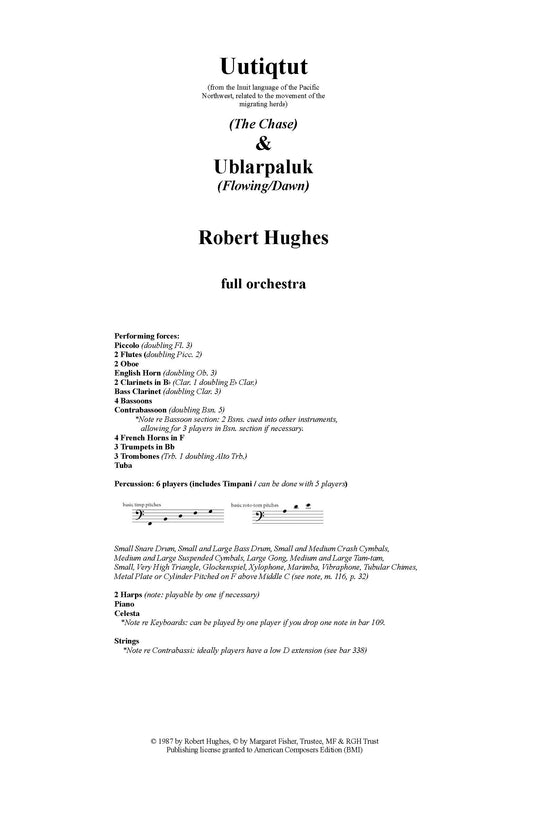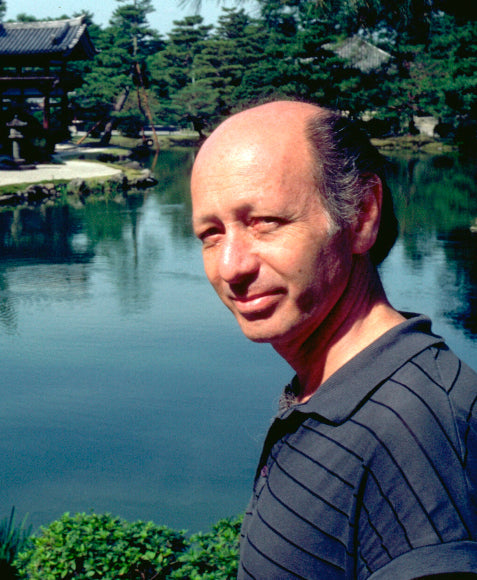
Hughes, Robert
1933 - 2022
ROBERT HUGHES (1933–2022), composer of orchestral, chamber and vocal works, six ballets, eighteen film scores, and a body of electronic music, studied composition with Aaron Copland, Carlos Chavez, and Luigi Dallapiccola. He studied conducting at University of Buffalo and the Mozarteum in Salzburg, and modern music with Pierre Boulez at Darmstadt. His instruments were bassoon and contrabassoon and he was proficient on the Korean piri, or oboe. His studies with Lou Harrison in Aptos dating to 1961 developed into a musical partnership and friendship for over forty years that included the founding of the Cabrillo Music Festival, and the conducting, recording, arranging, and publishing of Harrison’s music and poetry. He also co-wrote music with Harrison, such as the double music Ritmicas, an homage to the Cuban composer Amadeo Roldán.
Carlos Chavez, as Music Director of the Cabrillo Festival, commissioned Hughes to compose new work over a five-year period to integrate the Moog synthesizer with classical performing forces. Hughes received commissions as well from the San Francisco Symphony, St. Paul Chamber Orchestra, Oakland Ballet, San Francisco Ballet, PBS, the Department of the Interior, and the Alaska Arts Council, among others. Of note is the composer’s fresh approach to instrumental tone colors within the music. His continued interest in the Moog as an additional voice informs some of these commissions, but by the 1980s he was no longer composing with the Moog. From that time forward he composed entirely for acoustic voices for his concert music, and used a Prophet 10 synthesizer to fulfill film, video, and stage commissions.
The defining composition of Hughes’ career is the “multi-perceptual” (the composer’s phrase) Silenus’ Antiphonary, for Western and Asian instruments. Electronics did reappear, relegated to an almost imperceptible continuous drone underneath the acoustic voices. Performing forces are ensemble, chamber, full, and extended orchestra, chorus and vocal soloists. This programmatic work takes the seasons for its structure, the Greek demi-god Silenus for its protagonist, and the quest for innocence through experience for its overarching drama. The oversize color score with music, image, intertext and hypertext is as much a visual work of art as it is a musical work of art, a prototype of accumulation and excess that the composer could write only after a full career of composing, conducting, and performing, and an active engagement with literature and art of all cultures and times, with a preference for the extreme poles of each discipline—the very old and the very new.
Other musical production of note includes numerous pieces for ballet, modern and Renaissance dance, large double orchestral works for youth orchestra to be performed with a professional partnering orchestra and/or chorus. Also notable is a body of programmatic works with themes on the Pacific Northwest and the Inuit Peoples therein; and a body of virtuoso ensemble pieces for children’s films, written for musician-friends in the San Francisco Symphony. Hughes composed extensively for wind quintet and also created arrangements of Harrison, Ives, Shostakovich, Schoenberg, and Dowland for wind quintet as well as for orchestra.
Music production tangential to original composition includes the recovery and arrangement of Robert Louis Stevenson’s music; the arrangement of California Gold Rush songs; the recovery of Saint-Saens’ Hail! California, lost after its premiere at the 1915 Panama-Pacific Exposition; and the recovery, premiere, recording, and print publications of all of the music of Ezra Pound, this latter research spanning fifty years and establishing Hughes as a niche expert in this subject, along with R. Murray Schafer, friend and colleague. Hughes received a Lifetime Achievement Award in 2015 from the Ezra Pound Society for his contributions.
It remains to mention the composer’s path-breaking initiative in the mid 1960s to found and shape the Youth Chamber Orchestra (YCO; later, the Oakland Symphony Youth Orchestra, OSYO) as a semi-professional touring and recording group for contemporary and world music, and music embedded within the history of the state— the California missions, the Gold Rush, and the Mexican, Chinese, and Japanese Diaspora in California. The YCO developed a program of musical, social, and political significance titled “The Black Composer in America,” which they toured to the (still unofficially segregated) American South in 1970 as an integrated orchestra and then recorded for the Desto label on LP and featuring seven living composers.
Hughes’ conducting and commissioning activism on behalf of contemporary music was an important component of the Northern California music scene. With the YCO he commissioned Ned Rorem, Henry Brant, and Bob Moran to write virtuoso music, spatial music, and multi-media spectacle, respectively. He commissioned Laurie Anderson in 1980 to write “Born, Never Asked” for the OSYO. It became the seed for her breakout hit “Oh, Superman.” In 1977, he co-founded with Thomas Buckner the Arch Ensemble for Experimental Music, a one-each-instrument group that performed new music and multi-media works with an emphasis on West Coast composers. He also guest-conducted many symphonies and ensembles up and down the West Coast and in Alaska. In the 1960s he was Assistant Conductor with the Oakland Symphony, Cabrillo Festival, and San Francisco Ballet, before devoting himself almost exclusively to new music. In 1988 he conducted Keith Jarrett and Lucy Stoltzman in Harrison’s “Suite for Violin, Piano, and Small Orchestra” for New World Records; and in 1990 he conducted two Frank Zappa ballets with the Lyons Opera Ballet in France. He then retired from conducting.
Hughes received Fulbright, Rockefeller, NEA, ASCAP, and Exploratorium awards, numerous research, residency, conducting, and composition awards, and was inducted into the Buffalo Music Hall of Fame. He was a life member of the American Federation of Musicians, Local 6, following in the footsteps of his father, a Teamster in Buffalo New York during a difficult time for unions. In August 2023, the Cabrillo Festival staged a two-night tribute to the composer. Original music by Robert Grove is published by American Composers Alliance, Second Evening Art, LLC, and Carl Fischer, Inc., and Disney Music Publishing. His arrangements of Lou Harrison’s music are handled by Peer International (Suites for Cello); and by Peters Music (“Sonorous or Exquisite Corpses” by Cage, Cowell, Harrison, Thomson, and Wigglesworth for wind quintet).


